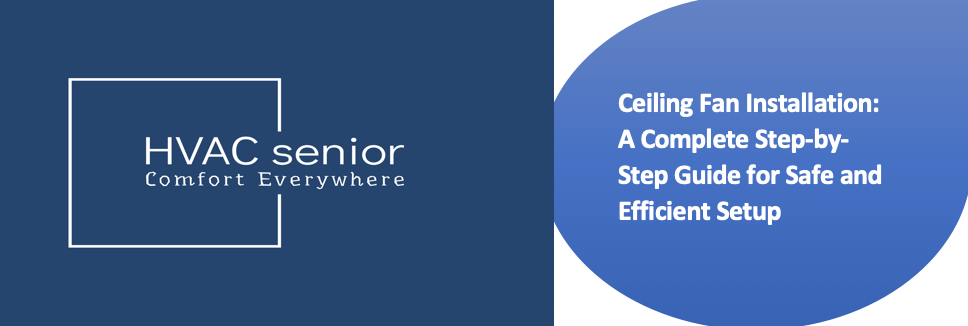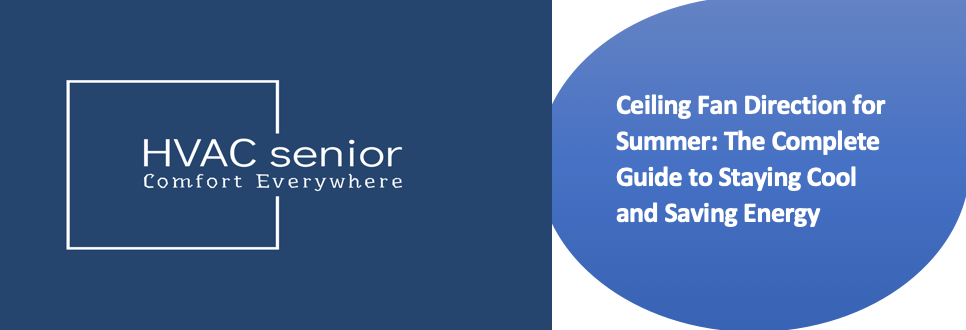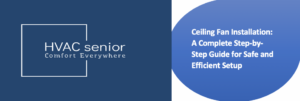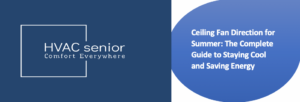Of all the frustrating problems one has with their AC unit, this is likely the worst: it runs but doesn’t pump cold air. The fan is spinning, you hear the hum of the compressor, but it just won’t cool your house down. The good news? Generally, this issue can be repaired without having to replace the entire system.
In this detailed troubleshooting guide, we’ll cover why your AC isn’t blowing cold air, the common causes, and step-by-step fixes you can try before calling a technician.
Common Reasons Your AC Is Running But Not Cooling
Numerous issues can make an air conditioner run but not give cold air. The most frequent ones include:
- Low refrigerant level
- Filter dirty
- Frozen evaporator coil
- Dirty condenser coils
- Malfunctioning thermostat
- Faulty compressor
Now, let’s go over each of these in detail.
1. Low Refrigerant Levels (Freon Leak)
Refrigerant is the lifeblood of your AC system; it’s what pulls heat from your indoor air and transfers it outdoors. When there’s low refrigerant as a result of some leak, the system cannot cool effectively.
Signs of Low Refrigerant
• AC runs constantly but never cools enough
• Ice forming on refrigerant lines or coils
• Hissing or bubbling noise near the outdoor unit
• High electricity bills without better cooling
Fix
Handling refrigerant must be done by a licensed HVAC technician only. Repair:
1. Locating and sealing the leak
2. Recharging the system with the right refrigerant type and pressure
⚠️ Do not attempt to top up refrigerant yourself—it’s illegal in many areas and can damage the system.
2. A dirty or clogged air filter
The simplest and most common cause of poor cooling is a dirty air filter. An air filter that is clogged constricts airflow, allowing the evaporator coil to freeze and ultimately block the circulation of cool air.
How to Check
•Shut the unit OFF.
• Remove the filter from the return vent or indoor unit
• If it looks gray, dusty, or clogged—replace it
Fix
Replace disposable filters every 30–90 days, depending on your environment and usage.
A clean filter helps maintain:
• Better airflow
• Improved indoor air quality
• Reduced strain on the blower motor
3. Frozen Evaporator Coil
If your evaporator coil (the part responsible for cooling the air) freezes over, it cannot absorb heat as it should, so the air coming from the vents feels warm or weak.
Causes of a Frozen Coil
•Dirty air filter
•Low refrigerant levels
•Blocked return vents
•Faulty blower fan
How to Fix
1. Switch off your AC completely.
2. Allow the coil to thaw naturally; this may take several hours.
3. Replace the filter and check for airflow restrictions.
4. Switch it on, once completely dried.
Also read: AC Compressor Working but Not Cooling
4. Dirty Condenser Coils (Outdoor Unit)
It is the condenser coils in the outside unit that release heat absorbed from inside your home. If they are covered in dirt, debris, or grass clippings, heat cannot escape, and thus the system will run without cooling.
How to Clean Condenser Coils:
1. Switch off supply to the AC system.
2. Clear debris from the outdoor unit.
3. Clean the coils gently with a garden hose without using high pressure.
4. Use coil cleaner spray for deep cleaning.
Such regular servicing can help raise the cooling efficiencies by as much as 30%.
5. Thermostat Issues
Sometimes the problem isn’t your AC, but rather your thermostat.
Common Thermostat Issues
- The settings are incorrect (set to the “Fan” mode instead of “Cool”)
- Dead batteries
- Miscalibrated temperature sensor
- Outdated thermostat
Quick Fix
• Make sure it’s set to “Cool” and temperature is 5°F (3°C) below room temp.
• Replace batteries.
• Clean any dust accumulation inside the thermostat housing.
6. Leaky or Blocked Air Ducts
Even when your AC is cooling properly, leaks in your ducts can let cool air escape before it reaches your rooms.
Signs of Duct Problems
- Uneven cooling between rooms
- Weak airflow
- High utility bills
- There are visible gaps or damage in the ducts.
Correct
• Ducts located in attics or crawl spaces should be inspected for visible holes and loose connections.
• Seal small leaks using aluminum foil tape or mastic sealant.
• In the case of extensive damage, duct pressure testing and sealing should be handled by a professional.
7. Electrical or Capacitor Problems
This capacitor provides the initial jolt of energy for the compressor and fan motors to start. When it fails, your AC just hums or runs weakly without blowing cold air.
Symptoms
• AC unit hums but fan doesn’t spin
• Compressor Clicks on and Off
• Burning smell or bulged capacitor top
Correct
Capacitor replacement is also better left to the professionals due to the high voltage risk it carries; a technician will be able to test and replace the faulty component quickly.
8. Faulty Compressor
The compressor is the heart of your AC system. If it’s malfunctioning, refrigerant won’t circulate, and no cooling will occur.
Signs of a Failing Compressor
- AC runs but blows warm air
- Tripped circuit breaker
- Rattling or grinding noises
- AC stops after a few minutes
Correct
Compressor repair or replacement is a major repair-get a professional diagnosis first. If your system is over 10 years old, replacement may be more cost-effective.
DIY troubleshooting checklist
Before calling in a technician, here’s a quick DIY checklist:
Step What to Check Possible Fix
| Step | What to Check | Possible Fix |
| 1 | Air filter | Replace if dirty |
| 2 | Thermostat | Set to “Cool,” replace batteries |
| 3 | Circuit breaker | Reset if tripped |
| 4 | Outdoor unit | Clean coils, remove debris |
| 5 | Air vents | Ensure they’re open and unblocked |
| 6 | Condensate drain | Clear any water blockage |
| 7 | Ice buildup | Let coils thaw before restarting |
Once you’ve done all the above and your system still won’t blow cold air, then it’s time to call an HVAC professional.
Also read: Outside Ac unit not turning on
Call a professional HVAC technician if:
- You suspect a refrigerant leak
- The evaporator keeps freezing
- You hear unusual noises (hissing, buzzing, grinding)
- You smell electrical burning smells
- Compressor refuses to start
A professional will check system pressure, test components, and perform any needed repairs safely.
Preventive Maintenance Tips
Follow these preventive tips to keep your AC running efficiently:
1. Replace filters every 1–3 months
2. Cleaning coils twice a year
3. Annual Refrigerant Check
4. Ducts: check for leakage and poor insulation.
5. Schedule professional maintenance before summer
Routine servicing not only avoids breakdowns but can also extend your AC’s life by 5–10 years.
Final Thoughts
If your AC unit is on but not blowing cold air, don’t rush into panic mode. First, perform the easy checks: filters, thermostat settings, and coil cleanness. Many cooling issues come down to restricted airflow or minor maintenance problems.
However, if you suspect a refrigerant leak or electrical issue, contact a qualified HVAC technician immediately. Regular maintenance and prompt repairs will ensure your air conditioner keeps your home cool and comfortable all season long.









